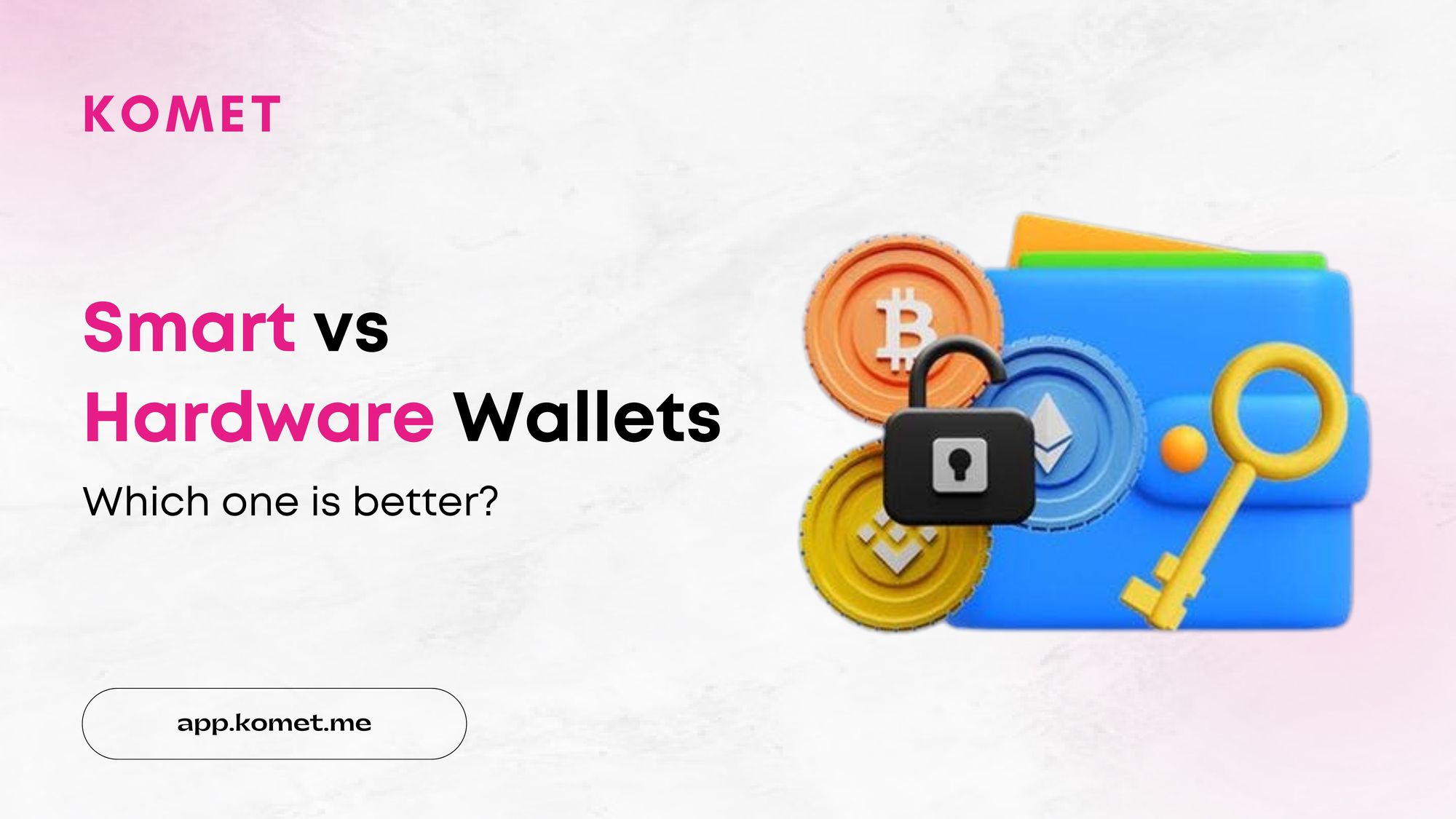Smart Wallets vs. Hardware Wallets; a Comprehensive Guide

When digital assets come into question, the way we store and manage them is crucial. Two popular options are — smart contract wallets and hardware wallets. While both offer unique benefits, they cater to different needs and preferences.
Here’s a simple guide to understanding how they work and which might be right for you.
Understanding Hardware Wallets
What Are Hardware Wallets?
A hardware wallet is a physical device, like a USB drive, that stores your cryptocurrency offline. This makes them highly secure since they’re not connected to the internet, reducing the risk of hacking. Examples include Ledger and Trezor.
How Do Hardware Wallets Work?
When you want to make a transaction, you connect your hardware wallet to your computer. The wallet signs the transaction with a private key that never leaves the device, ensuring your funds are safe.
Pros:
- Extremely secure due to offline storage.
- Less vulnerable to online attacks.
Cons:
- Can be lost, along with your funds, if you misplace the wallet and recovery key.
- Less convenient for daily transactions.
Introducing Smart Contract Wallets
What Are Smart Contract Wallets?
Smart contract wallets, like Komet, use blockchain technology to offer advanced features and enhanced security. They aim to make crypto transactions as easy as online shopping while maintaining high security standards.
How Do Smart Contract Wallets Work?
Smart contract wallets use multi-signature setups and customizable security settings. This means you can set up your wallet to require approvals from multiple trusted accounts (called guardians) before a transaction can occur.
Pros:
- Easier to use for daily transactions.
- Support for multiple blockchains in one wallet.
- Enhanced security with multi-signature and customizable recovery options.
Cons:
- Depend on the security of your guardians' devices.
- Requires trust in the companies providing the wallet service.
Why Choose a Smart Contract Wallet?
Abstraction: Discover and trade diverse assets like NFTs and memes across different networks on one platform.
Low Transaction Fees: Transact on a single wallet instead of multiple chains, reducing fees.
Social Proof : With Komet’s social proof, access community data and use use it to make informed trading decisions.
Instant Liquidity: Access your funds quickly and easily.
Simplified Management: Manage all your assets from one wallet, similar to online banking.
Enhanced Security: Multi-signature setups require approvals from trusted sources for transactions.
Flexible Recovery Options: Easily recover your wallet if you forget your password or lose access.
Why Keep a Hardware Wallet?
Long-Term Storage: Securely store large amounts of digital assets you don’t need to access frequently. Think of it like a safe deposit box at a bank—secure but not for everyday use.
Combining Both for Maximum Security: Use a hardware wallet as a guardian for your smart contract wallet, adding an extra layer of security.
Choosing between a hardware wallet and a smart contract wallet depends on your needs. For the best security, consider using both together, ensuring your digital assets are both secure and easily accessible when needed.
